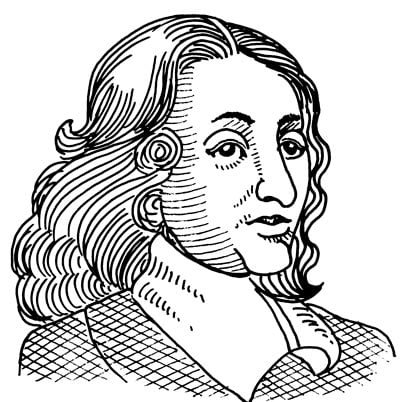
Blaise Pascal was born at Clermont on June 19, 1623. His father moved to Paris in 1631, partly to prosecute his own scientific studies, partly to carry on the education of his only son, who had already displayed exceptional ability.
His father, struck by his display of ability, gave him a copy of Euclid’s Elements, a book which Pascal read with avidity and soon mastered.
At 16, Pascal began preparing to write a study of the entire field of mathematics. Pascal began designing a calculating machine, which he finally perfected when he was thirty. The first accurate mechanical calculator was born.
At sixteen Pascal wrote an essay on conic sections; and in 1641, at the age of eighteen, he constructed the first arithmetical machine, an instrument which, eight years later, he further improved.
His correspondence with Fermat about his time shows that he was then turning his attention to analytical geometry and physics. He repeated Torricelli’s experiments, by which the pressure of the atmosphere could be estimated as a weight, and he confirmed his theory of the cause of barometrical variations by obtaining at the same instant readings at different altitudes on the hills.
In 1650, when in the midst of these researches, Pascal suddenly abandoned his favourite pursuits to study religion, or as he says in his Pensees, ‘‘contemplate the greatness and the misery of man’’; and about the same time he persuaded the younger of his two sisters to enter the Port Royal society.
In 1653 he had took up his old life again, and made several experiments on the pressure exerted by gases and liquids; it was also about this period that he invented the arithmetical triangle, and together with Fermat created the calculus of probabilities.
Pascal was dismayed and disgusted by society’s reactions to his machine and completely renounced his interest in science an mathematics. Even though the basic design of the Pascaline lived on in mechanical calculators for over three hundred years. As a counting machine, the Pascaline was not superseded until the invention of the electronic calculating machine. Pascal, genius by any measure, died at the age of 39 on August 19, 1662.

